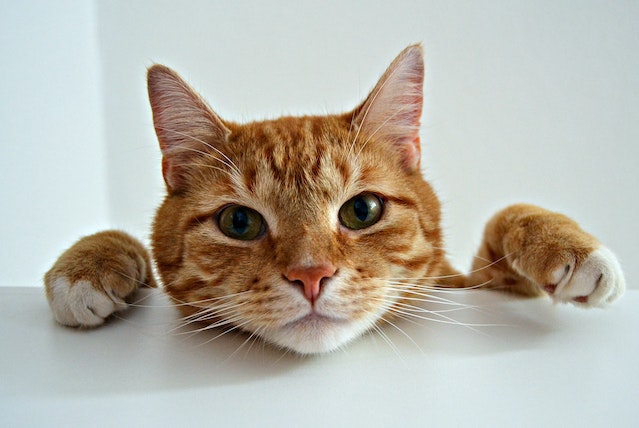Do you ever wonder why your cat meows so much?
Cats use a range of vocalisations to communicate, including meowing, purring, chirping, and hissing. Through these vocalisations, they exhibit their own personalities, which most people find appealing. However, issues develop when these vocalisations are excessive or happen at inappropriate times.
What is overly vocal behaviour?
There is no clear definition of excessive vocalisation. What is deemed "excessive" depends on the listener's tolerance level, which may be impacted by a variety of things, including previous experience with cats, the kind of vocalisation, the time of day, and the vocalization's apparent purpose. For instance, a noisy meowing cat during breakfast can be more bearable than a cat that meows nonstop in the middle of the night.When is a lot of vocalisation acceptable?
Vocalization is a natural part of cat communication with both humans and other cats. During mating season, when female cats are in heat and male cats vie for access to them, vocalisation often rises. (Eliminating this clamour is a wonderful reason to spay or neuter your cats.) When there are household changes like a relocation or a pet's transition from being an outside to an inside pet, vocalisation tends to increase. The increases in vocalisation in these circumstances might be momentary. Siamese cats in particular vocalise more than other cat breeds.What causes vocalisation that is excessive?
The most typical reason for excessive vocalisation is the taught habit of attention seeking. Many cats learn to meow to request food or access to the outside world. This method works well in the early morning or late at night when you are exhausted. You could give in to your cat's requests in order to silence the annoying noise. Cats will vocalise even if you try to ignore them after they get used to your attention. As you are surely aware, cats often outlive people, so you could cave in eventually.The existence of a medical condition or a more severe behaviour issue may also be indicated by excessive vocalisation. When cats are in discomfort, have neurological issues, or have sensory deficiencies like hearing loss or vision loss, they may meow excessively. Cats may vocalise regularly due to anxiety, aggressiveness, anger, cognitive impairment, or other behavioural issues.
How are excessive vocalisations handled?
Depending on the underlying issue, vocalisations are overdone may need treatment. Take your cat to a vet or veterinary behaviourist if she is vocalising excessively so a primary medical or behavioural diagnosis may be established.Consider why your cat is requesting extra attention if your veterinarian concludes that there isn't a medical reason for it. Because they are bored and don't get enough stimulus, many cats start vocalising. Increasing the mental and physical stimulation for your cat might solve the issue.
If you are giving your cat the appropriate stimulus and it is still vocalising to get your attention (and medical problems have been checked out), you must simply refuse to acknowledge the vocalisation, delaying any attention until the cat is silent. Cats often start vocalising more and for longer periods of time before giving up. You must continue to ignore the cat throughout this period. If you give in, your cat will discover that the only effective method to obtain your attention is by vocalising louder and for a longer period of time.
Reward your cat for engaging in more suitable behaviour in addition to avoiding the attention-seeking behaviour. This conduct might take the form of sitting calmly in front of you, touching you to make an inquiry, or just being silent.
Tags
Health

